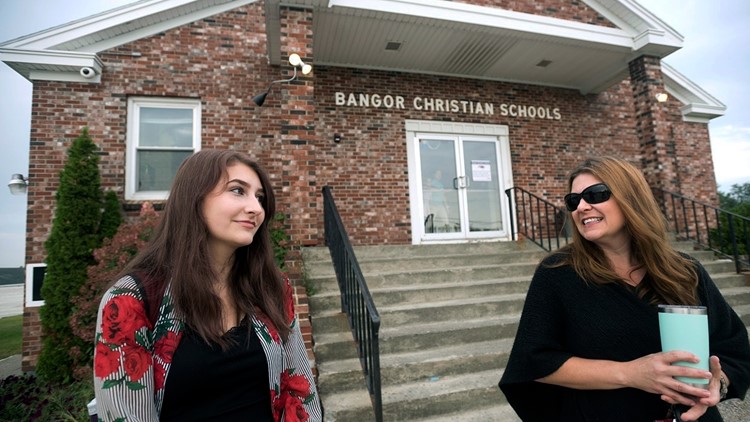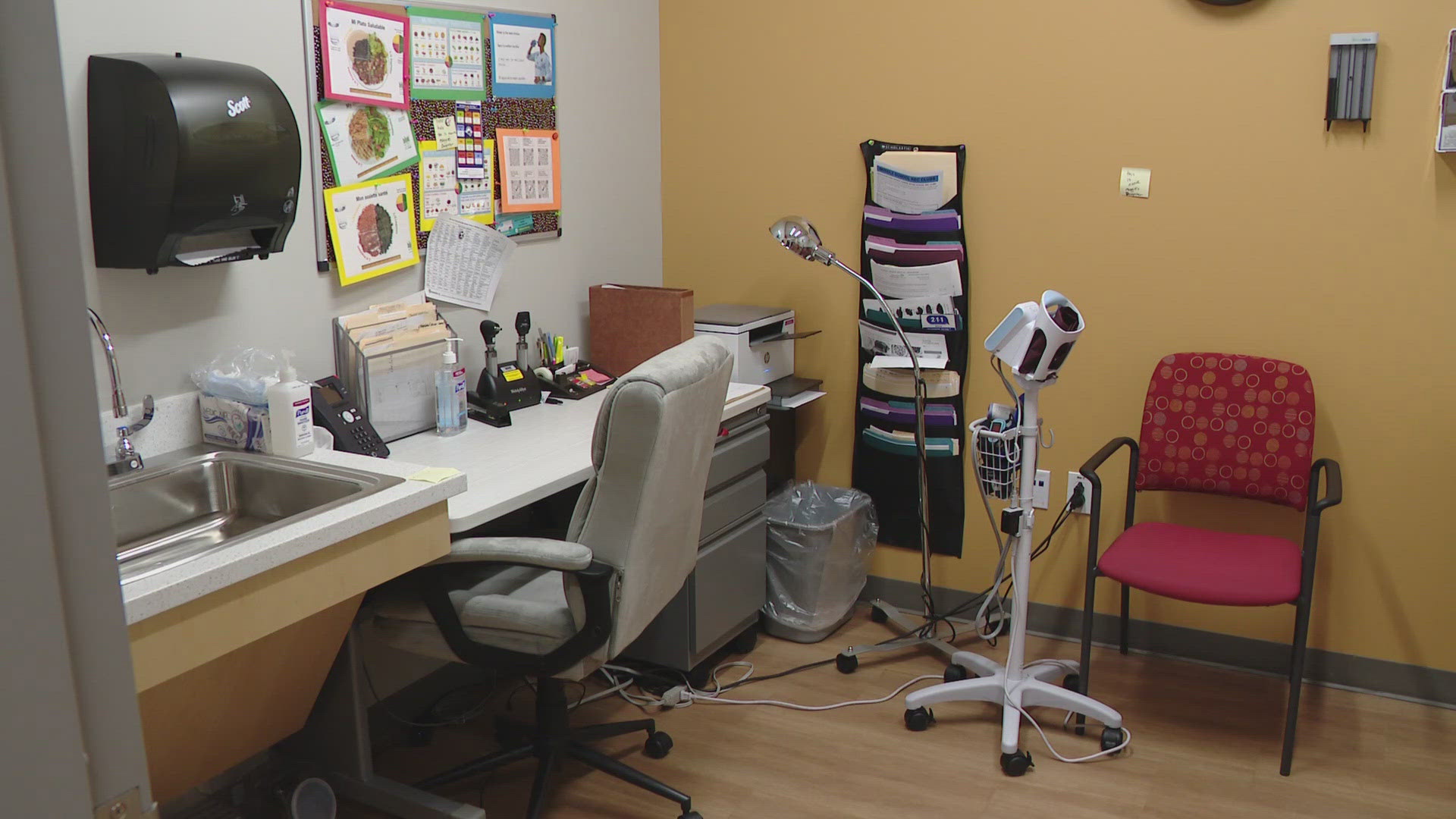PORTLAND, Maine — Parents of children enrolled in Maine religious schools fought for years — all the way to the U.S. Supreme Court — for the state to treat tuition reimbursements the same as other private schools.
But only one of the religious high schools that stood to benefit has signed up to participate this fall, after Maine's attorney general warned that the schools would have to abide by state anti-discrimination laws, including those that protect LGBTQ students and faculty. That development has frustrated the families who sued.
“Their hands are tied. The state said you can take the money, but we’ll tie your hands,” said David Carson, whose daughter was a sophomore at Bangor Christian Schools when his family and two other plaintiffs sued in 2018.
The Supreme Court ruled in June that Maine can’t exclude religious schools from a program that offers tuition for private education in rural towns where there are no public schools.
Religious high schools with a known stake in the tuition fight include two Roman Catholic-affiliated schools, along with schools in Bangor, Waterville, and Houlton.
Last year, 29 private schools participated in the tuition reimbursement program, enrolling more than 4,500 students, officials said. Those schools that meet the state’s criteria can get about $12,000 per student in taxpayer funding.
So far, only one religious school has signed up to participate, and that application will go through a review process, said Marcus Mrowka, a state education spokesperson. Mrowka declined to identify the school.
The deadline for applications is Thursday.
Michael Bindas is a senior attorney at the Virginia-based Institute for Justice, a nonprofit libertarian law firm that represented the families who sued. He said he’s not surprised the schools are slow to decide whether to participate, because of the questions raised by the attorney general.
“Those open questions, however, will be resolved in time, and we certainly expect religious schools to participate,” he said.
It’s more likely that there will be a greater impact in the 2023-24 school year, said Carroll Conley, executive director of the Christian Civic League of Maine, and a former Christian school headmaster.
“People want to see it happening, but schools are being cautious. It’s a big change,” Conley said.
There have been several lawsuits over the years before the U.S. Supreme Court’s 6-3 ruling earlier this year, which was hailed as a victory for school choice proponents — potentially giving life to efforts in some of the states that have not directed taxpayer money to private, religious education.
The Association of Christian Schools International, a Colorado-based organization that promotes Christian education, said the fact that 32 other states already have a school choice program speaks volumes.
“We hope that the 18 states that do not have school choice programs will one day have one,” the organization said in a statement.
In Maine, Attorney General Aaron Frey criticized the Supreme Court ruling and said all schools that accept public funds, including religious schools, must abide by the Maine Human Rights Act, which bans discrimination on the basis of race, gender, sexual orientation, ethnicity, or disability. That would mean accepting gay and transgender teachers and pupils, he said.
Both Christian schools associated with the lawsuit — Temple Academy in Waterville and Bangor Christian Schools — have policies that discriminate against students and staff on a basis of sexual orientation or gender identity, he said.
The Rev. Tom Brown, who is senior pastor and president at Bangor Christian Schools and an affiliated church, said in an email that “we are processing” the attorney general’s statements. He confirmed that no students will be getting state tuition reimbursement this fall.
Officials from Temple Academy didn’t return messages.
The Supreme Court ruling doesn’t affect the Carson family because their daughter already graduated from high school, and is enrolled in college.
But David Carson, of Glenburn, said it’s frustrating to see the legal victory muddied by the attorney general.
“It’s disappointing when you do all this and nothing happens,” he said. “It’s kind of a circus to me. The Supreme Court says one thing, but the state attorney general just does what he wants to do.”
More NEWS CENTER Maine stories



